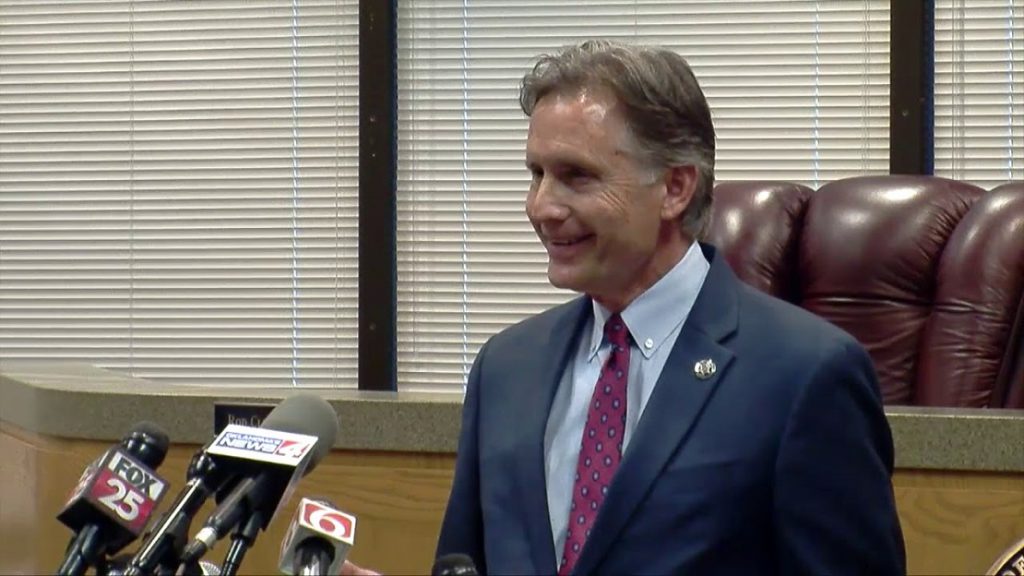Oklahoma state starts gaming compact negotiations with tribes

Oklahoma’s attorney general began casino gambling negotiations with more than two dozen tribal nations on Monday, but the sides remain locked in a stalemate over whether the existing gaming compacts automatically renew at the end of the year.
Attorney General Mike Hunter described the two-hour, closed-door meeting at the Citizen Potawatomi Nation’s Grand Casino Hotel & Resort as “positive and constructive,” but offered few details about the stalemate. He said the meeting was a good opportunity to outline the state’s position.
Oklahoma’s new Republican Gov. Kevin Stitt has taken the position that the 15-year compacts expire at the end of the year and wants to renegotiate the terms to give the state a larger share of casino revenue.
The 35 tribal nations with gaming compacts are unified in their position that the agreements automatically renew after Jan. 1 if an agreement can’t be reached on new terms, and that that issue must be resolved before negotiations can begin.
“The way forward is to come up with a process that resolves the dispute, getting that resolved, getting it in a trajectory where it is no longer a barrier to looking at ways to modify the compact in a way that benefits the tribes and the state mutually and cooperatively,” Hunter said.
Matthew Morgan, chairman of the Oklahoma Indian Gaming Association and a key player in the discussions, said tribal leaders will take time to assess today’s discussion, but that it’s clear there is a “major dispute” over the renewal language.
“Nothing is more important to the tribes than resolving the automatic renewal, and we are committed to continued dialogue,” Morgan said in a statement.
Oklahoma’s current gambling compacts call for the tribes to pay between 4% and 10% of a casino’s net revenue in “exclusivity fees,” which gives tribes the exclusive rights to operate casinos in the state. Those fees generated nearly $139 million in payments to the state last year on roughly $2.3 billion in revenue from games covered under the compacts.
Nearly 60% of Oklahoma voters approved a state question in 2004 that authorized expanded gambling, and nearly all the tribal nations in Oklahoma signed compacts with the state shortly thereafter. Casino gambling is now a booming industry in Oklahoma, with 130 casinos dotting the state, ranging from gas station annexes to resort-style hotel casinos, many of them in border communities.
Without a compact in place, Oklahoma tribes would be unable to offer many games at casinos, including advanced slot machine-style electronic games or card games such as poker and blackjack. Casinos could still feature bingo-style electronic games, which remain popular in Oklahoma and don’t require the tribes to pay any fees to the state.
No tags for this post.




